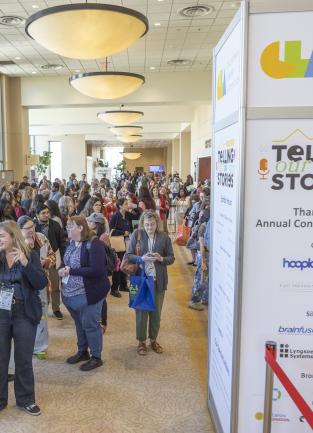So, we meet again
May 31, 2018
I really don't like Google. Well, it's not so much that I don't like Google as a company so much as it is what it has done to the legal system. Well, it's not so much what it's done to the legal system as it has done to the people who relied solely on Google to supply their legal pleadings.
Time after time I have people come to me complaining about stupid judges who granted demurrers against them when all they did was use the complaint (or answer) they found on Google.
So, it might come as a shock to some that I used Google today to find an answer (that's "answer" as in an answer to a reference question; not answer as in responding to a complaint).
I know - it shocks me, too, but sometimes, being a well-rounded researcher means that you have to swallow your pride and set aside your prejudices and use the tools you have in front of you to get a job done. Today was such a day.
So, picture it. Guy comes in the library and hands me a form he signed. The section he's dealing with has this line that reads: "Fulfillment of Mental Health Law [SB 2050] - Firearms Prohibition. Guy wants me to find what law SB 2050 is referring to. Really? No year, no indication whether SB (I presumed that meant Senate Bill) 2050 was from a state or a federal jurisdiction or whatever. Guy just wanted to know what SB 2050 was referencing.
Turning to Google and the Internet, I typed in: Fulfillment of Mental Health Law and got 1,950,000 results in all of .48 seconds. Nothing that helped me, but that's a pretty impressive number.
Then I utilized a little technique I call Internet Math to help in my search. Internet Math works like this. If you put a plus ("+") symbol in front of a word or phrase, then all results must contain that word or phrase. If you put a minus ("-") symbol in front of a word or phrase, all results must exclude that word or phrase. If you put two or more words in quotes, all results must be returned with those words in just that order.
So, the next search I ran was: "Fulfillment of Mental Health Law" and I got zero (0) results in under .45 seconds. Guess putting that phrase in quotes was too narrow. So, I expanded my search a bit and typed: Fulfillment of Mental Health Law "SB 2050". This time I got 108 results in .28 seconds. That's pretty good and while there were some vague reverences to SB 2050, it wasn't what I was looking for.
Next, I tried: "Mental Health Law" +"SB 2050" and while I got 481 results in .30 seconds and while some of these results related to mental health, they did not have any reference to firearms.
I knew I was close so, on my next search, I ran: "firearms prohibition" sb2050 and got 36 results in .35 seconds and wouldn't you know it but the first result referenced mental health, firearm prohibition AND SB 2050 which all pointed to California Welfare & Institutions Code § 8100 which states (in pertinent part):
8100(a) A person shall not have in his or her possession...any firearms...if he or she has been admitted to a facility and is receiving inpatient treatment, and...is a danger to self or others.
And there you have it. In little under 15 minutes, I ran about 5 searches using Google and finally found what Guy wanted.
OK, so Google has some utility and can help find legal stuff when you're in a bind. I would still not advocate using any pleadings found on Google until you vet it with your state codes.
But then, that's just the law Librarian in me talking.











